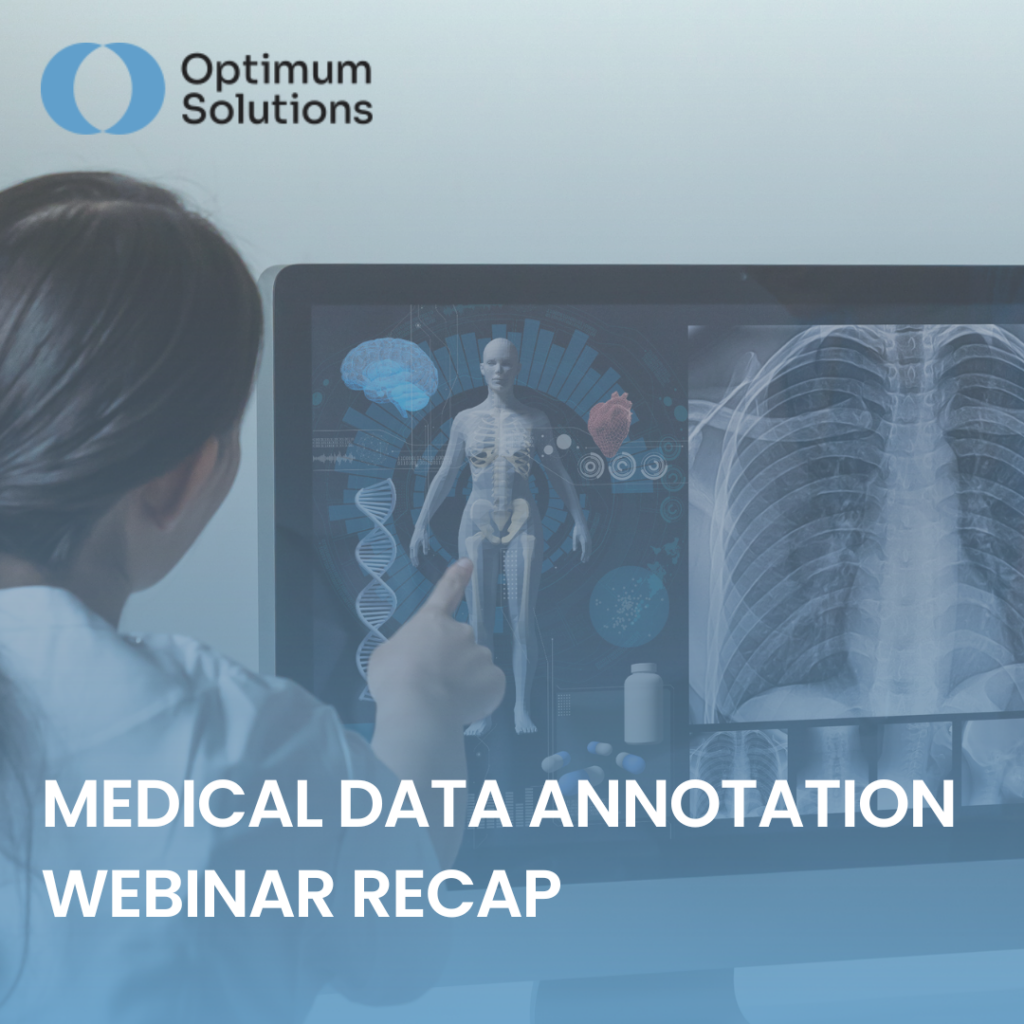
In our recent webinar, our guest, Dr. Hasina Rabarison, an expert in medical data annotation with many years of experience in digital technologies in healthcare processes, shed some light on the critical role of medical data annotation in advancing Artificial Intelligence (AI) and Machine Learning in Healthcare.
This annotation involves labeling medical data—such as images, videos, and text—so that AI systems can learn to recognize patterns, detect issues, and predict outcomes. This process is essential for developing strong AI models to improve assessment accuracy and speed up disease identification.
Why Medical Data Annotation is Essential
Medical data annotation is crucial for AI research in healthcare. AI models require vast amounts of already labeled data to learn effectively. In diagnostic imaging, AI requires thousands of annotated X-rays or MRI scans to accurately recognize diseases like cancer. Each annotation helps the AI system tell apart normal and unusual results, imitating human expertise in diagnosis and treatment suggestions.
Types of Medical Data and Annotation Techniques
Medical data comes in various forms. Specifically, it includes textual data (e.g., medical observation notes, electronic health records), images (e.g., X-rays, MRI scans), medical procedure videos, and body signals (e.g., electrocardiograms). You can annotate each data type to create organized data for AI analysis. Experts use techniques such as division, labeling, and key point annotations to label specific parts of the data. As a result, these techniques enhance the AI’s ability to make accurate predictions.
Challenges in Medical Data Annotation
- The need for large quantities of data means that manual data annotation alone is not sufficient. While having more data is beneficial, it also presents challenges. Specifically, manual annotation can be slow, complex, and expensive due to the need for highly skilled specialists.
- There is personal judgment in annotations, as experts may interpret data differently, leading to variations. This difference can be affected by regional differences in medical practices.
- The cost of expert annotation is significant, making it a major challenge in the field.
Skills and Tools Required for Medical Data Annotation
Medical data annotation is highly expert and requires several skills. Dr. Hasina stressed that annotators must have medical knowledge, attention to detail, and ability with specific software tools. Teams often include healthcare experts and technical experts working together to ensure annotations meet clinical standards and AI needs. Various tools are available for different types of annotations. For instance, there are platforms for image and video tagging, natural language processing for text data, and data display tools for medical imaging.
Use Cases and Benefits for Healthcare Companies
Medical data annotation has numerous use cases in healthcare. In radiology, annotated scans enable AI to assist in early disease detection. In pathology, AI can detect cancer cells in tissue samples, speeding up diagnostics. For genomics, annotated genetic sequences help AI discover disease biomarkers, contributing to personalized treatment plans and new medication development. For healthcare companies, medical annotation is crucial for developing AI-based diagnostic tools, reducing costs, and improving efficiency.
Future Prospects
The future of medical data annotation is bright, with AI becoming increasingly capable of handling complex annotations. This will reduce the workload for healthcare personnel and improve healthcare management. As new types of data, such as real-time data from wearable devices, become available, medical data annotation will continue to evolve. Consequently, it will open new horizons for patient monitoring and personalized care.
If you’re interested in watching our webinar, you can find it on Optimum Solutions Ltd’s LinkedIn page. Additionally, if you want to learn more about our medical data annotation services and initiatives, you can schedule a free digital coffee through this link: https://calendly.com/lucoptimum/onlinecoffee.
#MedicalAnnotation #MachineLearning #HealthcareInnovation #AIResearch #AIinHealthcare